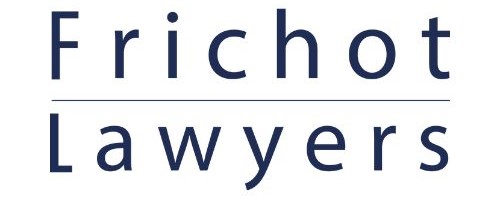Being a victim of a criminal offence can be a traumatic experience with long-lasting physical and psychological effects. The injuries sustained have the ability to impact not only your career, but also your confidence and life in general. Criminal injury compensation legislation in Western Australia aims to ensure that you are compensated if you are a victim of a criminal offence. We recommend you consider the following issues to ensure that you are aware of your rights and obligations as a victim of crime.
1. What is Criminal Injury Compensation?
Criminal injury compensation is compensation awarded to victims of crime that have suffered injury or loss as a result of the criminal offence. The compensation is paid by the State.
2. Am I Eligible for Criminal Injuries Compensation?
You may be eligible to criminal injuries compensation if you are:
- a victim of an offence and are injured;
- a victim of an offence and have suffered financial loss; or
- related to a person who was killed as a result of an offence
Even if the alleged offender is not caught or convicted you may still be eligible for an award of compensation.
Ensure that you report the incident to police as soon as possible. If the incident you are involved in is not reported to police, compensation will not be granted.
3. When Should I Make My Application?
You must lodge an application within three years from the date of the incident. Failure to comply with this limitation period may hinder your ability to receive compensation. Nonetheless, if you do not comply with the limitation period and can prove that you had good reason for not doing so, you may still be able to apply for an extension of time to make a claim. For example, you may be eligible for an extension of time if you were injured as a child or had an intellectual impairment at the time of the incident.
If you still require ongoing medical treatment due to the extent of your injuries, it is best to lodge your claim before the time limit expires in conjunction with sending a letter to the Office of Criminal Injuries Compensation explaining your specific circumstances.
4. What Information Must I Prepare for my Application?
Submitting a detailed application will increase your prospects of success. When lodging your application make sure you include:
- evidence that substantiates the injuries sustained such as medical or psychological reports;
- details of the offence including the incident or charge numbers;
- your account of the offence and how the injuries sustained have impacted your life; and
- proof of any expenses incurred as a result of the injury, including loss of income, the cost of medical treatment and the cost of transport.
5. What is Compensation Awarded For?
You may be awarded compensation for pain, suffering, loss of income, loss of enjoyment of life, medical expenses and any other incidental expenses.
6. Can I apply for an Interim Payment?
You may be eligible for an interim payment, which is an upfront payment for expenses accrued whilst your award of compensation is being assessed. If you are subsequently awarded compensation, the interim payment forms part of your award. If you are unsuccessful and are awarded an interim payment you then incur a debt to the State that must be paid off in due course. To ensure that you do not incur any unwanted liabilities, we recommend you consider discussing your application with a criminal injury compensation lawyer.
7. Will the Offender Know About My Compensation Claim?
The offender will usually be provided with a redacted copy of your claim and any associated medical records.
8. Should I Consult a Compensation Lawyer?
Applying for criminal injuries compensation can be an overwhelming process. We therefore recommend you obtain legal advice from a legal practitioner if:
- the alleged offender is acquitted;
- the alleged offender is not charged for the offence;
- you are unsure of the extent of your loss;
- you wish to claim for future loss of earning
- you wish to claim for psychological injuries;
- the limitation period has expired; or
- you are unsatisfied with the award of compensation you received.
At Frichot & Frichot we are dedicated to providing our clients with comprehensive and professional legal advice. If you or someone you know requires assistance with their legal matters, call Frichot & Frichot on (08) 9335 9877 or complete the form below to request an introductory consultation.

